Filter by
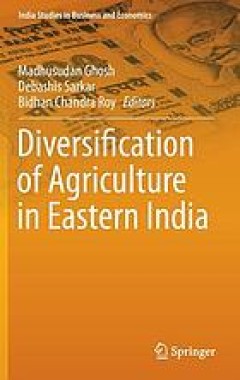
Diversification of agriculture in eastern India
Divided into three parts - Rationale and Extent of Agricultural Diversification, Nature and Problems of Agricultural Diversification, and Food and Livelihood Security through Agricultural Diversification, this edited book examines various aspects of agricultural diversification in Eastern India. In recent years, Indian agriculture has been diversifying from cereals to high-value crops and lives…
- Edition
- -
- ISBN/ISSN
- 9788132219972
- Collation
- 242 pages
- Series Title
- -
- Call Number
- 630.954
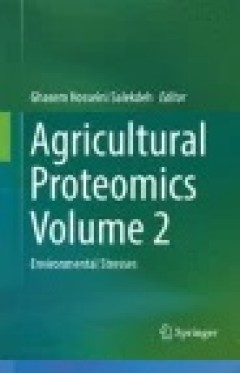
Agricultural Proteomics Volume 2: Environmental Stresses
This book will cover several topics to elaborate how proteomics may contribute in our understanding of mechanisms involved in stress adaptation. The knowledge being accumulated by a wide range of proteomics technologies may eventually be utilized in breeding programs to enhance stress tolerance. This book presents comprehensive reviews about responses of crop and farm animals to environmental s…
- Edition
- Ed. 1
- ISBN/ISSN
- 978-3-319-43278-6
- Collation
- XI, 314
- Series Title
- -
- Call Number
- 630 AGR a

Agricultural Proteomics Volume 1: Crops, Horticulture, Farm Animals, Food, In…
This book will cover several topics to elaborate how proteomics may enhance agricultural productivity. These include crop and food proteomics, farm animal proteomics, aquaculture, microorganisms and insect proteomics. It will also cover several technical advances, which may address the current need for comprehensive proteome analysis.An emerging field of the proteomics aim is to integrate kno…
- Edition
- Ed. 1
- ISBN/ISSN
- 978-3-319-43275-5
- Collation
- XI, 255
- Series Title
- -
- Call Number
- 630 AGR a
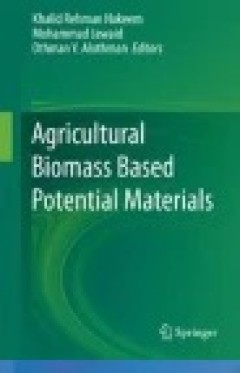
Agricultural Biomass Based Potential Materials
Agricultural biomass is abundant worldwide and it can be considered as alternative source of renewable and sustainable materials which can be used as potential materials for different applications. Despite this enormous production of agricultural biomass, only a small fraction of the total biomass is utilized for different applications. Industry must be prepared to take advantage of the situati…
- Edition
- Ed. 1
- ISBN/ISSN
- 978-3-319-13847-3
- Collation
- XXI, 505
- Series Title
- -
- Call Number
- 630 AGI a
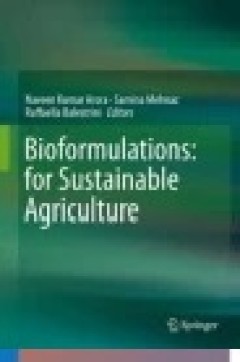
Bioformulations: for Sustainable Agriculture
More than a century has passed since the first bioformulations were introduced to the market. But there is still much to be done, explored and developed. Though bioformulations offer green alternatives and are important for sustainable agriculture, they make up only a small fraction of the total additions used to enhance crop yields or protect them from pests. There is a great need to develop b…
- Edition
- -
- ISBN/ISSN
- -
- Collation
- -
- Series Title
- -
- Call Number
- 630
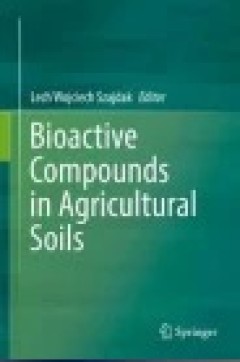
Bioactive Compounds in Agricultural Soils
This volume looks at the impact that different cropping systems and tillage have on soil’s biologically active substances. It considers how phytotoxins accumulate and can inhibit the development of cultivated plants. Coverage explores the continuous cropping of rye, crop rotation, no tillage, and conventional tillage. It offers a comprehensive, comparative approach to allelopathic plant-soil …
- Edition
- -
- ISBN/ISSN
- 978-3-319-43107-9
- Collation
- -
- Series Title
- -
- Call Number
- 630
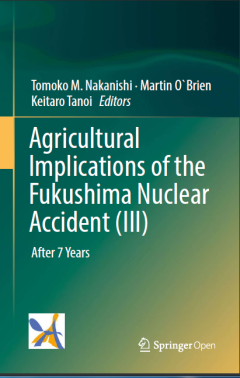
Agricultural Implications of the Fukushima Nuclear Accident (III) : After 7 Y…
This open access book presents the findings from on-site research into radioactive cesium contamination in various agricultural systems affected by the Fukushima Daiichi Nuclear Power Plant accident in March 2011. This third volume in the series reports on studies undertaken at contaminated sites such as farmland, forests, and marine and freshwater environments, with a particular focus on lives…
- Edition
- -
- ISBN/ISSN
- 978-981-13-3218-0
- Collation
- -
- Series Title
- -
- Call Number
- 630 AGR

Advances in Wheat Genetics: From Genome to Field: Proceedings of the 12th Int…
This proceedings is a collection of 46 selected papers that were presented at the 12th International Wheat Genetics Symposium (IWGS). Since the launch of the wheat genome sequencing project in 2005, the arrival of draft genome sequences has marked a new era in wheat genetics and genomics, catalyzing rapid advancement in the field. This book provides a comprehensive review of the forefront of wh…
- Edition
- Ed. 1
- ISBN/ISSN
- 978-4-431-55675-6
- Collation
- XVI, 445
- Series Title
- -
- Call Number
- 630 ADV a

True Truffle (Tuber spp.) in the World Soil Ecology, Systematics and Biochem…
This book focuses on the taxonomic diversity of the genus Tuber as economically important truffles. In contributions by internationally respected scientists, it examines truffle systematics, interactions with abiotic and biotic environments, strategies for spore dispersal, and molecular processes in truffles. Topics discussed include: evolutionary theories and phylogeny of Tuber species from As…
- Edition
- -
- ISBN/ISSN
- 978-3-319-31436-5
- Collation
- 43 b/w illustrations, 28 illustrations in colour
- Series Title
- -
- Call Number
- -
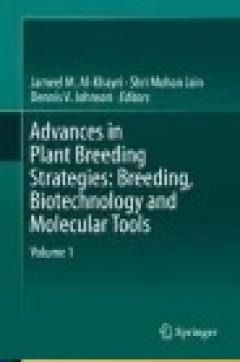
Advances in Plant Breeding Strategies: Breeding, Biotechnology and Molecular …
The basic concept of this book is to examine the use of innovative methods augmenting traditional plant breeding towards the development of new crop varieties under different environmental conditions to achieve sustainable food production. This book consists of two volumes: Volume 1 subtitled Breeding, Biotechnology and Molecular Tools and Volume 2 subtitled Agronomic, Abiotic and Biotic Stress…
- Edition
- Ed. 1
- ISBN/ISSN
- 978-3-319-22521-0
- Collation
- XII, 656
- Series Title
- -
- Call Number
- 630 ADV a
 Computer Science, Information & General Works
Computer Science, Information & General Works  Philosophy & Psychology
Philosophy & Psychology  Religion
Religion  Social Sciences
Social Sciences  Language
Language  Pure Science
Pure Science  Applied Sciences
Applied Sciences  Art & Recreation
Art & Recreation  Literature
Literature  History & Geography
History & Geography